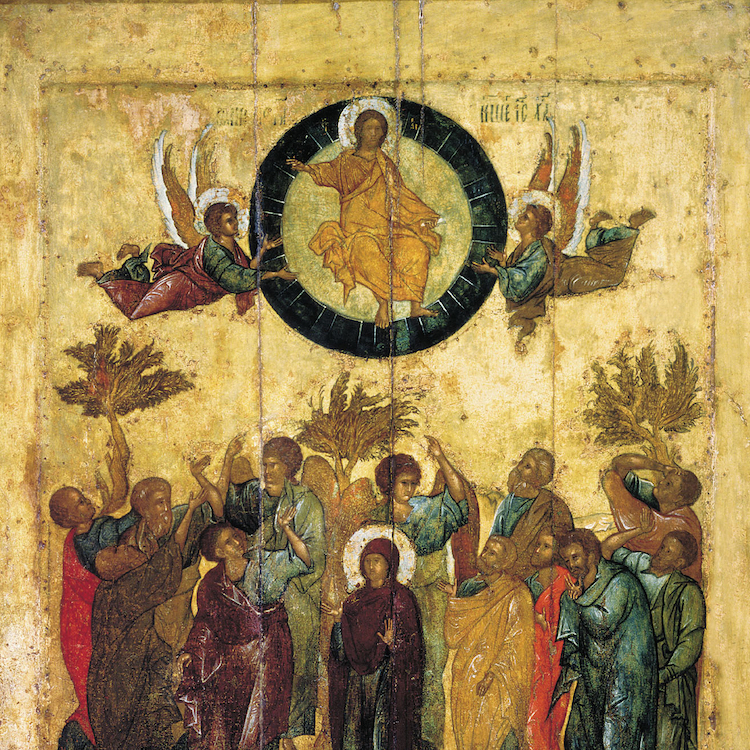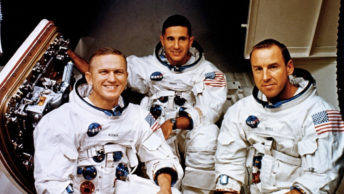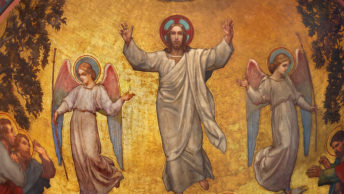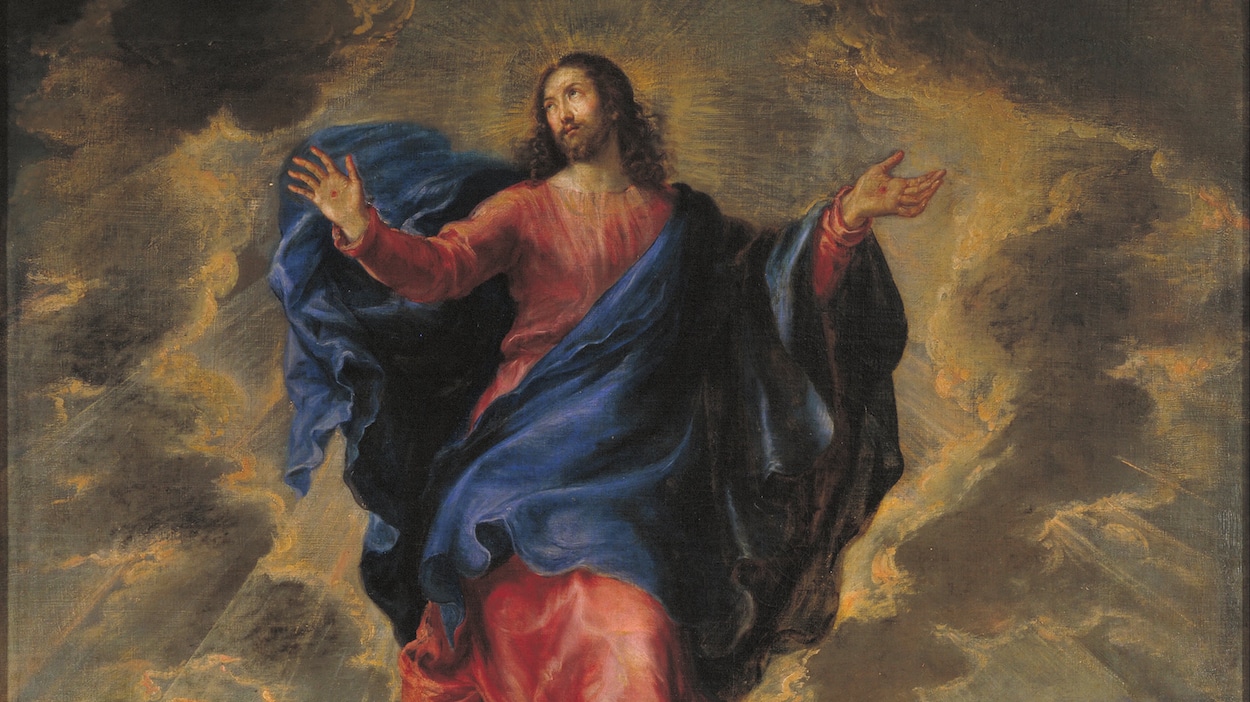The solemnity of our Lord’s Ascension into heaven is a unique celebration and, as such, it can be best understood only within the context of our being the Body of Christ, of our being Church. Its uniqueness, I think, lies in the purpose for which we “need” to celebrate it! It is the solemnity that is designed to help us have a foretaste of heaven while still on this earth.
It has to be contemplated from two converging points: The first point is that the Ascension of the Lord marks the completion of Jesus’ exaltation by the Father for his obedience to the will of the Father onto death, death on a cross. The second point is that we are to find suitable ways to feel at one with our exalted Lord while still sojourning in this valley of tears.
Hence, this is how we, as Church, as the Lord’s Body, turn it into a collective prayer:
Gladden us with holy joys, almighty God, and make us rejoice with devout thanksgiving, for the Ascension of Christ your Son is our exaltation, and, where the Head has gone before in glory, the Body is called to follow in hope. Through our Lord Jesus Christ, your Son, who lives and reigns with you in the unity of the Holy Spirit, one God, forever and ever. [Collect of Ascension Day]
Our joy is in being always one with our Lord Jesus Christ; our gratitude is now, and should always be, due to the spontaneous realization that the exaltation, i.e. glorification, of the Lord Jesus is the pledge of our endless, glorious future, too, because the Head (Jesus Christ) and the Body (the Church, all of us) cannot be separated.
Thus, the exaltation of the Head, which we contemplate on Ascension Day in particular, is designed to generate feelings of hope so strong and so intense that we can go about our life on this earth sustained by the new “presences” of our Lord. They are the “presences” which he introduced to his first disciples during those forty days between Easter and the day on which he was taken up to heaven.
At this point we need to be clear as to the meaning of the term “heaven.” The misunderstanding arises from our being people living in time and space. We have a past, a fleeting present and….a future (how long or short on this earth, no human being knows) followed, as we so strongly hope, by an endless future with the Lord in “heaven.”
Alas, whenever we think of heaven, instinctively, we look up into the sky as if “heaven’ were a place beyond the clouds. We do not stop to consider the weakness of such instinctive move: if we were living at the opposite side of the globe, we would be looking to “heaven” in the reversed direction. If, with our mind, we soar above time and space, we begin to see the inadequacy of our terminology and realize that “heaven” is simply being with the Lord with all the components of our human nature sanctified by grace.
Now, since the Lord cannot change his mind, this is what truly happens in the Lord’s endless present outside of time and space: For those he foreknew he also predestined to be conformed to the image of his Son, so that he might be the firstborn among many brothers. 30 And those he predestined he also called; and those he called he also justified; and those he justified he also glorified. Romans 8:29
From the Lord’s standpoint, we are already ascended into heaven; we are already exalted; we (the Body) are already visibly one with the Lord (the Head)!
St. John tries to explain the situation thus: Beloved, we are God’s children now; what we shall be has not yet been revealed. We do know that when it is revealed we shall be like him, for we shall see him as he is. 1 John 3:2
So, we are living on this earth for a time known only to the Father, and we move towards the moment when the two converging points (the Lord’s exaltation and our longing to be one with him) will meet and we shall be like God. This is predetermined, because the Head and the Body share the same divine “DNA!”
However, we live on this earth, making do with less than super-solid, overpowering “presences” of the Lord (they are actually quite challenging at first), and we are ordered to deal with the additional challenge of having to be and to act as “missionaries:” He said to them, “Go into the whole world and proclaim the gospel to every creature. Mark 16:15
The two most forceful ways of being present to us on earth are his Body and Blood in the Eucharist and in his Words of life. But we cannot overlook his promise to be present whenever two or three are gathered in his name, pray together or agree, as a community, on asking him for something. Nor can we ignore his assurance to be himself waiting for our attentive and loving service whenever we come across our neediest brothers and sisters. And, finally, we cannot forget that he is present in the person of those people whom he has appointed as teachers and shepherds over us on the way to “heaven.”
Let us be frank with each other: if our faith is weak, if we live with a foot on the side of Christ and his Church and the other foot on the side of the world, these “presences” would prove to be flimsy and, consequently, we would have no foretaste of heaven, and we wouldn’t be able to take seriously the Lord’s order to preach his Gospel to all we meet.
What if we doubt that Jesus Christ is truly present in the Eucharist with his body and blood, soul and divinity? What if we remain lukewarm before the Words of life spoken to us, or we disagree with them or dismiss them because we take issue with those whom Christ has placed as shepherds and teachers of his Word? What if we do not like the priest who is representing the Lord Jesus Christ at the Eucharistic Celebration? What if we criticize him, belittle him or we fail to see Jesus in him?
What if we see not a hungry, thirsty, naked, homeless, ill, imprisoned, needy Jesus but rather worthless, lazy people, leeches who know how to beat the system and milk society for all they can? What if we do not feel part of the community of believers and our prayers are self-centered and we are routinely indifferent to the plight of the less fortunate?
Well, we wouldn’t have any foretaste of heaven, for sure.
And, realistically, we could not hope that we will be exalted because, by our own freely-made choices, we would be aiming for a heaven quite different from the one promised by Christ and for which the Body, the Church longs with indescribable intensity.
Those among us who can say with sincerity of heart the aforementioned opening prayer (the collect) should urge all others to make the most of the “presences” which the Lord deems more than sufficient to sustain our hope. Besides, without exception, the saints in heaven, especially the martyrs, assure us that those “presences” are actually designed to sustain us through the worst trials, tribulations, challenges that we might have to face.
And, personally, I want to tell you, with visceral conviction, that the more we fine-tune our senses to those “presences” of the Lord, the more signs of his loving care we will notice around us, until our entire life will become a constant reminder of how much the Lord longs for us to be one day like him and to see him as he is.








